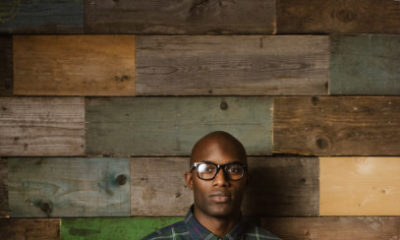Features
The Adoption Series by Abimbola Adeluwoye: Why Consider Adoption?

The BellaNaija community is one that thrives on the engagement and insight of its members. Families are represented here, and experiences are shared by people who are trying to start families.
The Adoption Series by Abimbola Adeluwoye is one that seeks to bring awareness to adoption in Nigeria. The idea is to show people that there are several ways to build a family. We hope that at least one life is touched in a positive way through the series. Abimbola will attempt to discuss issues surrounding adoption, how to go about it, the challenges that come with it, and ultimately, how to eradicate the stigma of adoption in Nigeria. {Click here to read the first post and the second post in the series }
***
My colleague, let’s call him Mr. P, has a girl living with him. She is from Cross Rivers State. The girl is his maid and is in the Secondary School. Her parents do not take any payment for the services she renders in his household. Instead, her father insisted that the money be used to send her to school. Recently, her father called to inform him that the decision of his daughter’s course of study in the University, who to marry, and the type of wedding to be contracted (whether Yoruba or Cross River culture) would be solely endorsed by Mr. P.
For all intents and purposes, Mr. P. has acquired a daughter in addition to the biological four he already has. He is acting, and will be presumed to act, in the place of one in the future. But under the law, as noted last week, a mere agreement cannot function as an adoption, stricto sensu, without the proper procedures laid down by the law.
Let’s go on to why people adopt.
Animals, have been long been considered as operating on a lower level of emotional capacity compared to the humans species as they do not have the cultural influences we do. But while they may not have a legal structure or process, animals also adopt.
It may be incomprehensible to some, but animals feel. They feel pain, they feel despair, they feel hopeless and despondent. They also have generosity of spirit which they are able to show even across their own species. These feelings, while hard to explain, have driven some animals to adoption.
There are numerous examples of adoption in the animal kingdom. We have dogs adopting other dogs not part of their litter; cats also do the same. This act has been described as instinctual.
According to a source, “Adoption is especially common among domestic animals. It is also common for many animals to adopt orphaned youngsters of their own species in order to care for and protect their inherent instinctual need for species protection”.
Perhaps most perplexing are animals who take on the young of other animals. From a dog adopting a lamb, to a tortoise adopting a hippopotamus, tigers adopting puppies, or a cat adopting a bunny, examples abound of such acts of adoption, usually arising when a female of one specie, finds an abandoned baby (or babies) of another specie of animal. This is referred to as cross-species adoption.
A leopard once killed a mother baboon, only to discover it was nursing a baby. Instead of feasting on her kill, she picked up the infant between her fangs and took it to safety, away from lurking hyenas.
One other story that particularly stands out is the story of a wild lioness in Kenya’s Sambora Reserve adopting a baby Oryx antelope, an animal that normally serves as food. What conservationists explained was that the lioness’ behavior was probably as a result of traumatic loss it must have suffered quite recently before encountering the Oryx which had been forgotten by its mother. It triggered a complex emotional reaction in the lioness which prompted her to rescue and treat the Oryx like its own cub. Despite the scarcity of food, it still did not eat it.
Early on in the United Kingdom, adoption was seen as an act of cold necessity. It was strictly perceived as the passing of a child between a woman who had gotten pregnant under shameful and corrupting conditions (usually fornication, adultery, incest, rape and such like); and a childless couple who were typically from the upper middle class. Other cases of adoption occurred when a child
Considering that the English were deeply religious people at the time, barrenness was seen as a mark of divine punishment for sins committed (So, no, it’s not just a Nigerian thing). The biblical instruction, “Be fruitful, and multiply, and replenish the earth” was a command from God to Adam and Eve in the book of Genesis and was taken very literarily by the English. Anyone who fell short of this had fallen far from God’s favor which friends, families and neighbors never let you forget what with such painful societal ramification.
Pregnancy was seen as a decision from God, because, for example, when, in Genesis 30, Rachel became jealous of her sister Leah, who had children, she grabbed her husband Jacob and said give me children or I die. Jacob was angry with her and responded that am I in the place of God who has kept you from having children?
The English believed that the Lord kept and liked to keepeth, especially from the rich and wealthy for whom babies were vetted and probed with such clinical detachment, they could only be referred to as movable goods. The Americans on their part employed such barbaric models called “eugenics”.
This model stemmed from the philosophy that “children whose birth parents could not or would not care for them were likely to be genetic lemons, destined to reproduce a host of menacing social problems, from criminality and poverty to alcoholism and sexual immorality”. According to the vocabulary of the day, many were feeble-minded, meaning “mentally retarded” or “mentally deficient” a state that illegitimate children were prone to inheriting from their feeble-minded mothers”.
This was the view in the nineteenth century. These are still the hidden thoughts of most of us today, when considering orphaned or abandoned children.
I watched many reruns of Long Lost Family on BBC (British Broadcasting Corporation) Family, which partly prompted the inspiration for this series. A surprising information was that, children were sometimes taken forcefully from “unfit mothers” with or without their initial consent and given to families they did not know or had a choice over.
Perhaps most surprising is that until 1926, adoption had no legal backing in the United Kingdom. This is particularly surprising as the English had one of the most developed legal system in the world at the time.
So think about it… adoption is actually an option if you really want to start a family.
Photo Credit: Kouassi Gilbert Ambeu | Dreamstime























